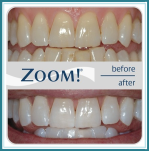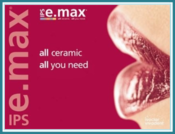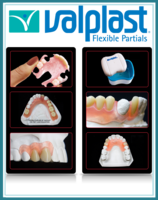
Dental Crowns at Roe Street Dental Practice, Macclesfield, Cheshire
Dental crowns (or caps) completely cover a heavily filled or broken tooth. They are made from gold or porcelain or a combination of the two and are used to prolong the life of your own tooth.
Why might I need crowns?
- To improve your smile
- To protect a tooth that has fractured
- To prevent a tooth from breaking after a root canal filling
- To protect a large filling
What materials can crowns be made from?
There are 3 main categories of crowns;
- All Metal Crowns - A variety of materials can be used for all metal crowns, from non precious alloys to high gold content crowns. The main advantage of such crowns are that the require less preparation (drilling) of the tooth, however the main disadvantage is their poor cosmetics.
- Porcelain fused to Metal Crowns - These tooth coloured crowns offer a more natural appearance than metal crowns and contist of a metal core covered with a porcelain layer. The main advantage is their greater aesthetic results, however in cases areas of metal can be visible from certain angles
- All Cermaic Crowns eMax - Modern advances in ceramic technology have paved the way for highly cosmetic and durable all ceramic crowns. These crowns are 100% metal free, thus offer the highest cosmetic appearance. Unlike metal ceramic crowns, there is no risk of black lines appearing around the gum which can occur following recession, and their metal free structure allows light to transmit though the crown like a natural tooth. http://www.ivoclarvivadent.us/smiletothemax/
Fitting a crown takes two visits with your dentist. At the first visit your dentist will prepare the tooth and will fit a provisional crown to protect your tooth until your next appointment. The laboratory will make a crown specifically for you which will be fitted at your second visit. Once you are happy with the crown and how it looks, it will be cemented firmly into place.
Making an appointment:
Address
Roe Street Dental Practice
1 Roe Street
Macclesfield
SK11 6UT












